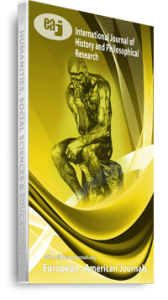Sri Aurobindo’s theory of Boycott is very important not only in the context of Indian politics but also to understand the inherent salient feature of Indian independence movement taken place in the pre-independent India. His theory concerning boycott has five counterparts, namely economic boycott, educational boycott, administrative boycott, judicial boycott and social boycott, to convey the uniqueness. Sri Aurobindo discovered the spiritual implication behind this theory of boycott which conveys the uniqueness of his thesis. To him the word ‘boycott’ spiritually stands as a means to preach for Zeitgeist both in the form of Kali and Krishna unlike Bankim. His thesis of boycott is commonly misinterpreted as an act of violence but Sri Aurobindo compared it with an act of self-preservance of the Kshatriya. The way of boycott is somewhat similar with concept of svadharma of the Kshatriya. The political battle of boycott seemed necessary to him for bringing the desired Indian independence. In this way the spiritual sense of boycott becomes inseparable with its political sense to Sri Aurobindo.
Keywords: Boycott, Indian independence movement., Politics, Spriritual implication, Sri Aurobindo

